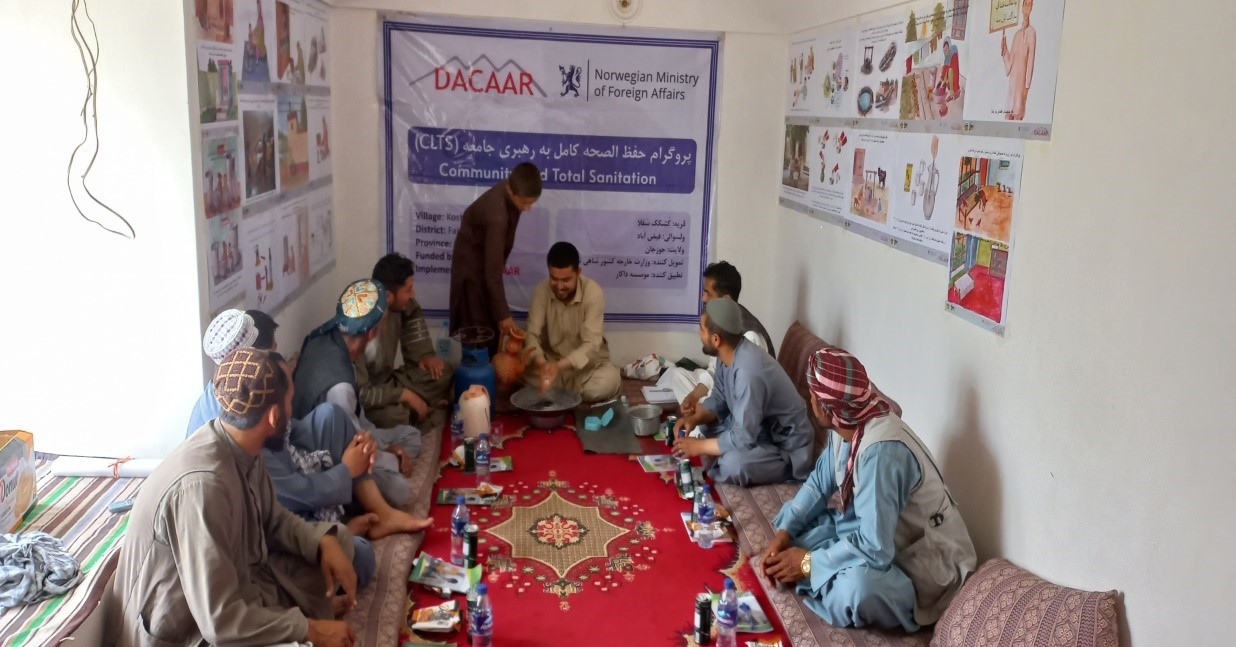A New Dawn for Rabiullah’s Family: How Clean Water and Hygiene Changed Lives
In Koshkak Sufla village, Faizabad district of Jawzjan province, life for 65-year-old Rabiullah and his family of six used to be a daily struggle against poor sanitation. As the family’s sole breadwinner, he worked tirelessly as a farmer, but access to clean water and proper hygiene remained a challenge. “Before receiving DACAAR’s assistance, our children used to go for open defecation. It was harmful to our family and our community,” Rabiullah recalled. Lack of proper sanitation exposed them to health risks, making everyday life difficult.
For years, families in the village had no choice but to rely on unsafe water sources, leading to frequent illnesses. Open defecation was common, and the lack of hygiene awareness put everyone at risk. However, things took a positive turn when DACAAR, with support from NMFA, implemented the CLTS Program in their community.
Through this project, a water supply network was installed, reaching 283 families, including Rabiullah’s. providing each household with a stand post, and three hygiene awareness sessions were conducted. Through these efforts, families learned essential hygiene practices such as proper handwashing, the use of improved latrines, and the importance of clean drinking water.
The change was immediate and life-changing. Rabiullah’s family now practices good hygiene daily, washing their hands at critical times, keeping their surroundings clean, and ensuring that drinking water is clean. “After receiving DACAAR’s assistance, I realized the harms of open defecation and unhygienic water. Now, our children wash their hands regularly, and we all use an improved latrine,” He said with pride.
The impact extends beyond individual households. Rabiullah and other beneficiaries are actively spreading hygiene knowledge within the community, ensuring that these positive changes are sustained for future generations. The entire village is now healthier and happier, embracing improved sanitation practices with gratitude.

Written by: Israrullah Sahil
 Danish
Danish